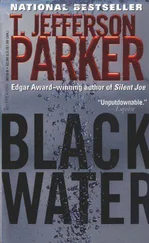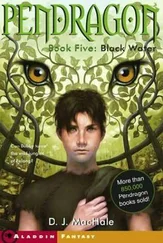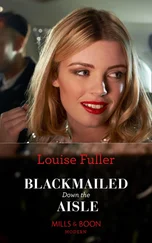The trick to being unusual was learning how to milk it. He liked to use the geography of his birth to wrong-foot people, especially women he was trying to bed. He liked to choose exactly the right moment to reveal a little about himself — after a few drinks together, when their gazes had locked once or twice. Maybe there had been a light touch or two, a brushing of a sleeve, a hand resting briefly on a knee, although that would have been quite forward in those days. In the early sixties, as he remembered, a woman’s favourite way of inviting physical contact was to pick a bit of fluff off your suit jacket, often with a brusque, maternal swipe of the hand. After a certain amount of this, a certain amount of her batting him around like a small boy, came the point when he could start taking the initiative. These small physical gestures were only indicators, though. The real movement forward came when the talking started, when they began exchanging stories. That was when he knew he was home and dry.
One of his favourite gambits was to ask her where she was born: always so much more tactful than asking a woman how old she was. You could get tripped up that way if you weren’t careful: they had a tendency to ask you to guess, a question which was surprisingly hard to answer to your own advantage. If you stuck to where rather than when, it was a neat and simple way into intimacy. You couldn’t say to a woman, ‘Tell me your unhappiest childhood memory,’ straight off, but when they told you where they were born, the conversation automatically became more intimate. The tragic detail from her childhood would be lying in wait at the end of that simple, factual answer. Sometimes there wasn’t one, of course — sometimes the story of her birthplace was routine, told with a self-deprecating laugh in acknowledgement of its ordinariness. And then, because she was a nice woman — he only went for nice women — she would ask back.
The pause. The downward look. The soft voice that indicated this was not something that he usually confided in a person he had only just met.
‘I was born in a concentration camp.’
The best bit was the steady gaze he received, tinged with confusion, as the woman he was talking to recalibrated what little she knew of him, this tall young man with brown but not-dark skin and thick but straight black hair, who looked definitively un-Dutch but not definitively anything else.
Once, but only once, one of them said it out loud, sceptically, ‘You don’t look Jewish.’
Was it Alida who had said that? No, Alida came later. Alida came after ’65. Alida was the one who looked for the scars on his back: the scars that weren’t there.
Once, in a bar on Gravenstraat, a pale freckled woman with large breasts but unfortunate teeth came up to him while he was sitting on a high stool and stood next to him, waiting to be served. He wasn’t really out for the night, just having a beer after work, making the same one last until he was ready to go: Frankenmuth, brewed for modern American tastes. She stood a little closer than was necessary, considering the bar wasn’t all that crowded, she staggered a little — she was quite drunk, he thought — and put her hand on his thigh to steady herself, before saying, ‘Oh, I’m sorry,’ and then snatching the hand away, as if his thigh was hot.
The bartender came up to them and rested his wrists on the bar, looking at them expectantly, and the woman said, ‘Oh, it’s me now, thank you darling. Can you do a Pink Squirrel? Two of them.’ She held her fingers up in a V-for-victory sign.
The bartender looked at them with such disdain that Harper wanted to say, please, the second one isn’t for me .
‘Oh, okay,’ she said then. ‘Two Old-fashioneds.’ She looked at Harper. ‘My friend’s in the corner there. She’s really nice.’
They made small talk while the bartender mixed the drinks. Behind the rows of bottles on the wooden shelves, there was a mirrored surface that reflected the jewelled golds and browns and oranges of the various liquors. When he moved his head, he could glimpse different shards of their reflections; her hairline, an eye or ear, his nose. She turned her back to the bar, placing both elbows on it, and surveyed the room as if they were spies, before talking from the side of her mouth.
‘I’ve never met a neger before,’ she said. ‘Me and my friend are going to a party later, want to come along, meet my friends? They’re really nice people, they’d be interested to meet you.’
Up until that point, he had been giving it some serious thought. ‘Thanks,’ he said, picking up the change he had left on the bar and pocketing it. ‘But I’ve already met more than enough white people.’
*
‘Choose an Anglo name,’ his trainer at the Institute had told him, as they sat with clipboards in the meeting room and worked their way through the details of his new identity for travel purposes. ‘Something that’s easy for anyone to understand, something nice and neutral. Not Smith, for heaven’s sake. Barnhardt actually chose Smith.’
Nicolaas Den Herder, born on the island of Sulawesi in the Dutch East Indies, to a white Dutch mother and an Indo officer in the Dutch Colonial Army, had already changed his surname to Luther, then to Aaltink, then back to Den Herder.
He thought about it.
‘Favourite film star? Childhood pet?’ the trainer said helpfully.
‘My mind’s gone blank.’ How was it possible to name yourself?
The trainer sighed, lifted a sheet of paper on his clipboard, looked down and said, ‘Walton, Fullerton, Jamieson, Johnson, Harper, Headley. .’
‘Harper,’ he said to his trainer. Then, firmly, as if he had just put on a pair of shoes that fitted well, ‘John Harper.’
Once his probationary year was over and he had Stage One security clearance, he was based in Amsterdam at the Institute’s head office. His training was twofold; the training for what he would tell people he did for a living and the training for what he would really do. Officially, John Harper was a researcher for the Institute of International Economics, Amsterdam. His job was to read the newspapers and make economic forecasts and write reports. The international companies that retained the Institute then used those reports to decide upon the wisdom of sending in staff or building factories or digging holes in whichever particular country they were interested in.
Unofficially, there were the games. Maybe that was why he got into his line of work. Maybe that was why anyone got into it, because they liked playing games: well, that was why men did it, he presumed. Women didn’t seem all that bothered about playing games, let alone winning them. It was the watching — yes, that was it. Maybe women just weren’t voyeurs: too used to being the observed rather than the observer.
During this secondary induction period, his trainer told him to go and sit in a doctor’s waiting room and stay there until he had worked out what was wrong with every single patient.
‘Why?’ Harper had asked. ‘And how will you know if I’m right?’
‘That’s not the point of the exercise,’ his trainer had sighed. ‘The point of the exercise is to get you used to looking at people and working out what their story is. I don’t want to know whether you are right or not. I want you to come back and tell me how you came to your conclusions.’
In years to come, when his line of work turned into big business — it really took off in the eighties — there would be whole manuals on this stuff, training weekends, presentations on whiteboards with handouts in folders to take away and read at your leisure; graphs, statistics. Back then, in the sixties, the people who trained you more or less made it up as they went along: a little amateur psychology mixed with a whole bucket of intuition. Maybe it was easier, back then, when it was clear who the enemy was — and it was very clear.
Читать дальше












